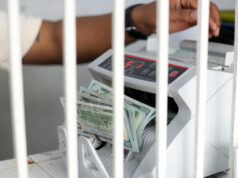South Korea FTA seen boosting Philippines e-vehicle industry
THE government said a free trade agreement (FTA) with South Korea could help the Philippines establish an electric vehicle industry because the country can support potential investment in a battery industry with its nickel and copper resources.
“Kung halimbawang (if for example) we’ll help [them] develop the market and infrastructure for electric vehicle here, would [they] be able to assemble here? In particular we’re interested in the motor (and) batteries. We have nickel and copper… So may pag-asa tayo ngayon sa (we have a shot at being a production site for) electric motors,” Trade Undersecretary for Industry Development and Trade Promotion Group Ceferino S. Rodolfo told reporters last week in Taguig City.
Mr. Ceferino said the country is lagging some Southeast Asian peers when it comes to electric vehicle production, with Japanese businesses already heavily invested in Thailand and Indonesia while Vietnam has also started developing its e-vehicle technology in partnership with European firms.
He said the Philippines has also been trying to entice Hyundai Group to put an assembly plant for e-vehicles.
Negotiations for an FTA would help the Philippines understand the regulatory and trade challenges that are keeping Seoul from making further investments here, he added.
“We have already, under TRAIN (Tax Reform for Acceleration and Inclusion) 1, exempted electric vehicles from excise taxes. In the IPP (Investment Priorities Plan) of the BoI (Board of Investments) pwede naman ‘yung pagtatayo ng charging stations ng mga infrastructure. (one of the eligible sectors is investment in charging station infrastructure) If sabihin nila, ‘Sige we could probably make you an assembly center, pero babaan niyo tariff rates on these e-vehicle parts,’ o sige, pag-usapan natin (We are willing to negotiate on tariffs for e-vehicle parts for companies that put up assembly centers),” Mr. Rodolfo, also BoI managing head, said.
South Korea is also seeking to lower tariffs on auto products which are currently at 5%.
“[They want] zero for CBU (completely built-up units), zero for parts. Depende. Tignan natin kung ano makukuha natin (The decision will depend on what we can get)… We’re studying it carefully,” Mr. Rodolfo added.
Under the proposed FTA, Philippine agriculture is expected to obtain greater market access to South Korea, which the latter is not willing to concede to other members of the Association of Southeast Asian Nations.
Mr. Ceferino said that the FTA proposes greater access for bananas but the Philippines intends to seek a beneficial arrangement for all agriculture products. Lowering the tariff on Philippine bananas is critical to compete with Ecuador, a top banana exporter.
The trade deficit in February widened by 9.9% from a year earlier to $2.79 billion.
In 2018, the trade deficit was at a record $41.440 billion, up 51.3%.
Merchandise trade between the Philippines and South Korea totaled $13.7 billion in 2018, making it the Philippines’ fifth-largest trading partner.
The Philippines’ top exports to South Korea include bananas, pineapples, copper while industrial products were the main imports.
The two countries are targeting to conclude FTA negotiations by November. — Janina C. Lim



